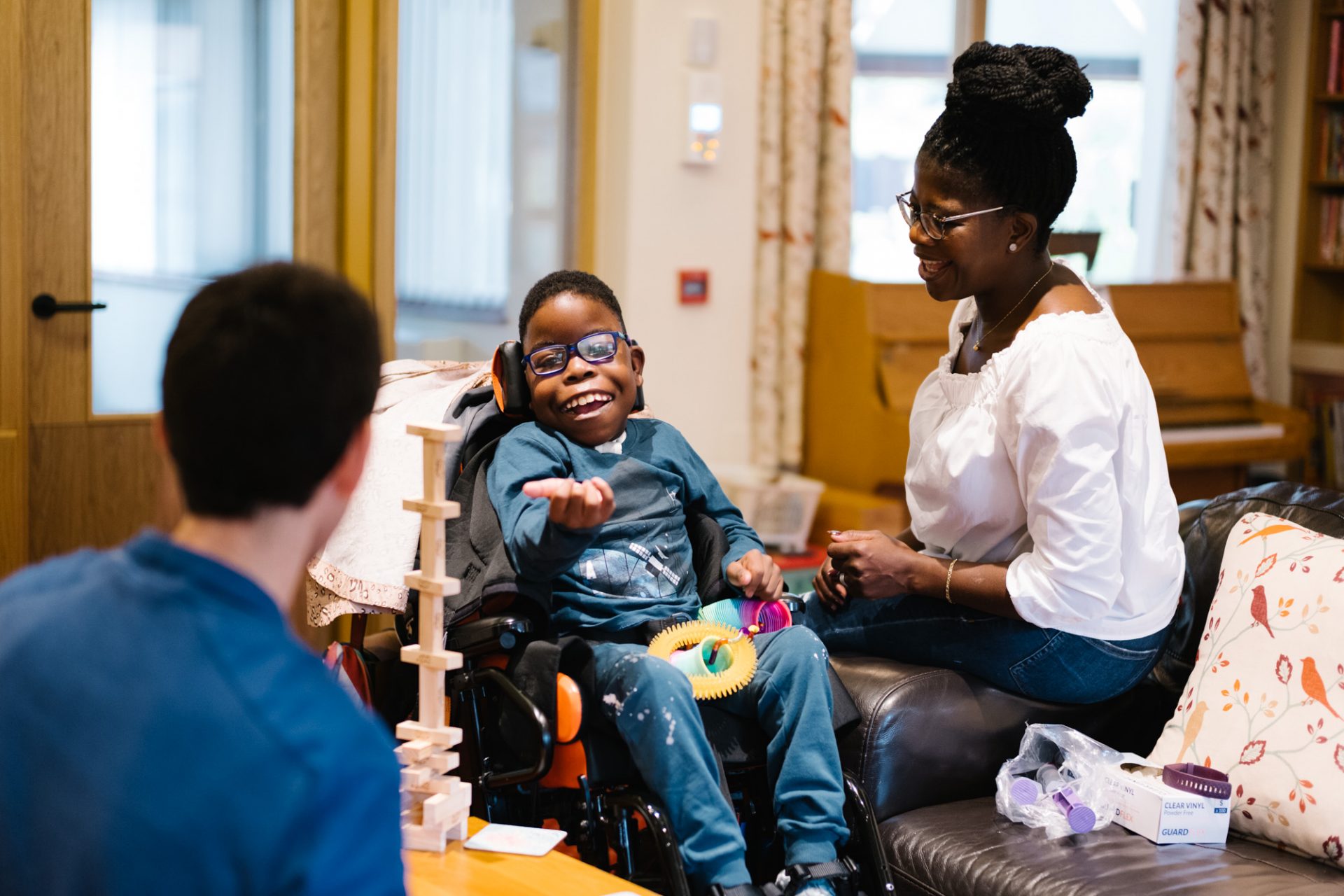Respite care

Respite care
Parenting is a full-time job in itself and being a parent of a child with additional needs or a disability can bring extra challenges. The government recently pledged extra funding for respite care and short breaks for parents and carers of children with disabilities, and this kind of support is available across the UK.
Respite care is when a person receives temporary or intermittent professional care in order to give their usual carers a break and give the person new experiences and surroundings. It is intended to benefit both the person in need of care and their carers. For a child with a disability, it allows the child to take part in exciting activities and social opportunities, while giving their parents time to relax and destress, or get on with other commitments.
If you are assessed as being eligible for it, your Local Authority has a legal obligation (under the Children Act 1989) to provide some respite care for parents of children with qualifying needs. These are called short breaks, and what is available depends on where you live. Some short break schemes are called ‘universal’, meaning they are available to all children, regardless of their needs.
Fad childcare Limited provides a respite care service that gives the care-giver a chance to have time to themselves while ensuring that the child or young person in need of support is being cared for in a safe and friendly environment. This can help support and strengthen your abilities as a care-giver. Finding a balance between work and home life is essential to ensure the carer can provide the very best service available for everyone.
These opportunities, which support ‘me time’ for both disabled children and their families, should be fun, flexible and personalised to meet the individual needs of disabled children and their families and address the government’s Aiming High for Disabled Children Programme.
We support children and young people with various disabilities, including those with moving and handling needs, with very severe, complex and/or challenging needs who may or may not have medical or nursing needs, disabled children on the autistic spectrum with additional impairments and older disabled children.
We have a strong track record with many local councils, private organisations and individuals.
What respite care and short breaks are available?
At Fad Childcare, we offer Child Care in your own homeThis is when a care or support worker helps you at home with childcare. They might do activities at home with your child, help with washing, dressing and eating or put them to bed. Unlike a babysitter, your care or support worker will be trained to support your child’s care needs.
Care at home could be daily or weekly support, or you might request it when you are particularly busy with other things.
Care away from home
Playgroups and nurseriesAll nurseries in England, Wales and Northern Ireland, and many in Scotland, have a qualified Special Educational Needs (SENCO) teacher to support children with extra needs and disabilities. There are also some specialist nurseries for children with disabilities. If you choose to put your child into nursery part or full time, you can ask your local council for a needs assessment, which they will then use to write up a support plan for your chosen childcare provider to use.
There are playgroups around the country for parents with disabled babies and toddlers. They have specialist play areas, toys, activities and facilities for young children, and while parents and guardians stay with the children, skilled staff lead activities and can offer support with care. They’re a great place for the children to socialise and parents can also meet other parents who share their experiences. Play groups usually run sessions once or twice a week.
Day centres
Day centres provide fun and stimulating places for older children with disabilities to try new things, have fun and learn. They are a great place to socialise and to benefit from activities and facilities designed especially for children with extra needs. Many run Saturday clubs, summer holiday programmes and after school clubs, for children and teens to attend independently, often with a minibus service to collect them.
Day centres provide a wide range of opportunities to learn new skills and pick up new hobbies, through group games, outings and workshops. Facilities might include wheelchair accessibility throughout, a sensory room, a hypnotherapy pool, sports equipment, a games room or even an autism-friendly cinema room. Usually run by a mix of specialist staff and volunteers, your child may join in with existing programmes or have one created for them, with a mix of one-to-one and group activities designed to develop their life skills.
Support from a personal assistant (PA)
PAs can support people of all ages who have a disability to live more independently and give their parents and carers respite. As well as support at home, they can take your child on outings or support them to attend work, school or college.
You can arrange a PA through the council or an agency, or hire one yourself.
Overnight stays away from home
These could be a night or two away from home with a support worker or PA, or a stay in a residential home or specialist unit.
You may also be eligible for a grant to pay for a holiday for your child, or you could pay for one privately. Companies and charities provide group holidays for disabled children with care included, attending holiday destinations or specific disability-inclusive events, like the Mersea Island Festival.
Staying with another family
You may wish to take part in the Family Link scheme, a short break service when your child is linked with a carer who they go to for regular overnight stays with. The linked carer might be a single person, a couple or a family who also have children with disabilities.
Linked carers are carefully vetted and matched to your child according to you and your child’s needs and preferences.
How do I arrange respite care as a parent?
A good first step in arranging respite care is to have a Carers Assessment. This is carried out by your local council who will look at:
- The care that you provide and how it impacts on the rest of your life
- Your work and education commitments
- Social and other caring commitments, such as if you have other children or elderly parents to care for, if you have a partner to support you and social activities you would like to take part in
- Your physical, mental and emotional health
- Your housing
- Who could care for your child in an emergency
You have the right to a free Carers Assessment at any time, just contact your local council. They will likely create a care and support plan for your child that will include short breaks to allow you regular respite.
Your local council’s website is also a great place to find respite services in your area, though the local authority has a legal obligation to make you aware of any services that your child might benefit from after your Carers Assessment.
They also need to provide you with information about local parent carer forums online, where you can chat to other parents and carers of disabled children in your area and share experience and advice.
Fad Child Care
Choose Fad Childcare as your trusted partners in finding and selecting the perfect Nanny, PA, and au-pair for your family. We are dedicated to working with fantastic families and nannies, offering expert services to support these relationships.
-
Age0 Month(s) - 16 years
-
SizeUp to 6 Children/Home
-
Time:Flexible (Day/Night)
-
Pricing:Contact Us 0330 057 6063
- Enroll Your Child
